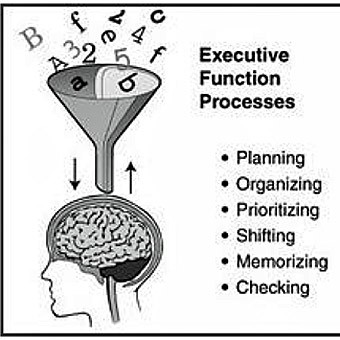Improve Your Leadership Potential with a Professional Evaluation
By On
Are You Worried You’re Not Reaching Your Leadership Potential?
You may be trying your best but still not achieving your goals. Maybe you are too slow, inconsistent or forgetful. You worry that something is wrong, but you don’t know what. In the past, you had trouble paying attention or completing tasks, but you were able to compensate. Now your work responsibilities are increasing, and you are falling behind.
Such are the situations of a medical resident who flunked her specialty boards, an entrepreneur building a social media company, an attorney at a boutique firm and an assistant professor seeking promotion. Although these individuals are smart, well trained and motivated, they are seriously under-performing. This confuses and frustrates them, as well as those who supervise them. Standard methods for providing assistance, including on-site mentoring, have not proved sufficient.
Under such conditions, a series of evaluations is necessary. First, it is important to visit a physician to rule out an illness—for example, fatigue caused by sleep apnea or some type of hormonal problem, such as thyroid malfunction. In addition, a physician might administer screening for emotional conditions like anxiety or depression. Sometimes therapy or medications are prescribed.
However, if problems persist, then it’s time to dig deeper. Consider a psychological or neuro-psychological evaluation to look into how your brain works, and your strengths and weaknesses, in light of the requirements of your job or position.
What is a psychological evaluation?
A standard psychological assessment typically evaluates general thinking and personality  functioning. A psychologist administers tests on an individual level. The results are used to evaluate intellectual potential and to diagnose possible psychiatric conditions. Such tests can help a psychologist understand whether a client has issues with things like anger management or interpersonal skills, or certain personality traits that contribute to the problem. “Other tests evaluate whether clients are experiencing emotional difficulties such as general anxiety disorder or depression.”
functioning. A psychologist administers tests on an individual level. The results are used to evaluate intellectual potential and to diagnose possible psychiatric conditions. Such tests can help a psychologist understand whether a client has issues with things like anger management or interpersonal skills, or certain personality traits that contribute to the problem. “Other tests evaluate whether clients are experiencing emotional difficulties such as general anxiety disorder or depression.”
Often, discrepancies in cognition are discovered. For example, a person may have a high potential to learn or connect the dots, but needs a lot of time to process an idea. A standard assessment can diagnose a condition such as ADHD (based on behavior and some test scores), but it lacks the specificity to understand what underlying neurological process is causing the symptoms, and therefore cannot provide customized recommendations for treatment. To get that information requires a neuro-psychological evaluation.
What is a neuro-psychological evaluation?
It’s a comprehensive battery of tests that provides a detailed picture of a person’s aptitude, achievement, and social and emotional status as compared to others at the same stage of development. It answers the question, “How is the brain functioning?” Only a trained neuro-psychologist can administer such assessments. Like the psychological evaluation, a neuro-psychological assessment involves a clinical history and interview, and completion of standardized checklists, paper-and-pencil tasks, hands-on activities and computer-based tasks.
For people who aren’t performing at a level commensurate with their potential and known abilities, a neuro-psychological evaluation is a tool educators, psychologists and physicians recommend when an explanation for the performance gap is not clear from other assessment tools. Neuro-psychological testing helps specify the origin and development of a disorder and points to customized recommendations.
People with achievement problems are confused and frustrated because their difficulties don’t make sense to them. For example, the bright professional who fails a licensing test or doesn’t finish reports may attribute poor performance to laziness or incompetence and may not consider the possibility of another explanation. Often it is only with a comprehensive neuro-psychological evaluation that the subtle yet complicated issues causing performance problems can be uncovered. Additionally, many people who are intellectually gifted have several disabilities that coexist (e.g., ADHD, learning disabilities and depression). Only an in-depth evaluation of special areas, including attention, learning, memory, visual-spatial skills, organization and emotional status, can identify such problems.
What Do You Learn from a Neuro-psychological Evaluation?
An evaluation report provides critical information about basic processes that have an impact on performance, including the following:
- Intellectual potential
- Learning style
- Rate of processing information
- Memory or retention
- Interactions between learning and emotional problems
- Problem-solving skills
- Attention and organizational skills
- Executive functioning
- Verbal and visual memory
- Auditory and visual processing
- Visual-spatial functioning
How Can the Results Help?
The results can assist you in several important ways—for example, by:
- Providing a differential diagnosis. (Is it an attention, learning or emotional difficulty?)
- Recommending appropriate accommodations or remediation.
- Providing references and resources.
Once people understand how the findings may account for the difficulties they have experienced, they can move toward:
- Understanding reasons for work or test-taking problems.
- Establishing a framework for collaboration with work personnel (and family).
- Dealing with longstanding, complex and difficult problems.
- Reducing anxiety about performance problems and developing realistic expectations.
What Are Attitudinal Barriers to Evaluations?
Some people react negatively to the idea of having an evaluation. The following are comments people often make and some responses to them:
I’ve never heard of it.
Just because you have never heard of it doesn’t mean that it isn’t valuable.
I don’t want to find out that something is wrong.
It is not uncommon to want to avoid “bad news.” But you will also receive good news about your strengths, along with recommendations on ways to cope and improve.
I already know what’s wrong.
You might know that something is wrong, but you probably don’t know the degree of these difficulties or whether you meet guidelines for accommodations at work or school. Studies have shown that individuals are unreliable reporters of the intensity of their own performance difficulties. In addition, you lack the tools to take the positive next steps. By getting an in-depth evaluation, you gain the information necessary to develop an efficient action plan.
It won’t make any difference in the long run.
Having an evaluation does make a difference. You sit with an expert and become aware of what your strengths are, why problems are occurring, and how you can manage your difficulties more effectively. Hope becomes a reality.
The testing is too expensive.
First, an evaluation is often a covered benefit. Second, your lack of information about the causes of failure or frustration is costing you time and energy. The money is well spent when you discover ways to save your career and optimize your potential.
Failing or under-performing professionals may have subtle but pervasive problems that hold them back. Because of their intellectual or creative talents, they may attain sought-after positions, but due to undocumented difficulties or disabilities, they are unable to meet the high demands of their jobs. When failure or under-performance can’t be explained, psychological or neuro-psychological evaluations can reveal the reasons and lead to great success and life satisfaction.
Additional information can be gained from the American Psychological Association, Division 40 (Clinical Neuropsychology) .
Read about adults with ADD or ADHD in the workplace
*******************************
Click Here for Great Resources from Dr. Geri Markel
Dr. Markel Offers Leadership and ADHD Coaching
Download Dr. Markel’s Speaker One Sheet: GeriMarkelCorporateOneSheet-Print
Value-Driven Keynotes and Breakouts.
Book Dr. Markel to Speak at Your Next Event? Connect Today!
